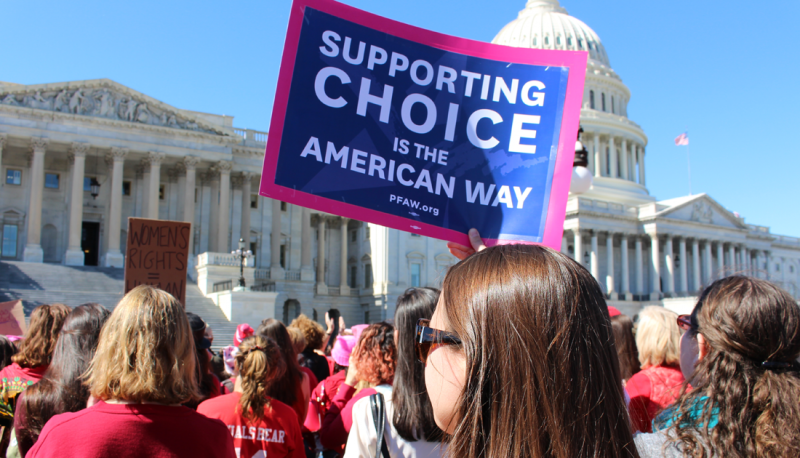“Confirmed Judges, Confirmed Fears” is a blog series documenting the harmful impact of President Trump’s judges on Americans’ rights and liberties. Cases in the series can be found by issue and by judge at this link.
Trump Sixth Circuit judge Amul Thapar cast the deciding vote to stay a preliminary injunction and allow Tennessee to implement a ban on anyone from performing an abortion who “knows” that the abortion is being sought “because of” the race, sex, or Down’s syndrome status of the unborn child, contrary to precedent. The November 2020 decision was in Memphis Center for Reproductive Health v Slatery.
This past summer, Tennessee enacted several very restrictive abortion laws, including a provision that bans abortion depending on a woman’s reason for seeking one. In particular, any doctor who “knows” that an abortion is sought “because of” the fetus’ sex, race, or Down’s syndrome status is prohibited from providing one and can be prosecuted criminally for doing so. A federal district court issued a temporary restraining order and preliminary injunction against the challenged laws, finding that they would cause doctors and others “immediate and irreparable injury” if allowed to take effect.
The state appealed the preliminary injunction and tried to stay the order that enjoined the so-called “reason ban” pending appeal, so that this specific law would take effect while the appeal is being considered. In a 2-1 order in which Trump judge Thapar cast the deciding vote, the Sixth Circuit granted the state’s request. The unsigned opinion maintained that the “common meaning” of the terms “knows” and “because of,” coupled with the statutory definition of “knowing” to mean “aware[ness] of the nature of the conduct,” were enough to provide “adequate notice of the prohibited conduct.” The district court was thus wrong to enjoin the provision as “impermissibly vague,” the majority concluded.
Judge Eric Clay strongly dissented. As he pointed out, women may have “multifaceted reasons” for seeking an abortion, and the statute is unclear as to how a physician would “know” that a particular abortion is being sought “because of” the specific prohibited factors. He pointed out that doctors could thus be subjected to “arbitrary and discriminatory enforcement” for simply discussing with a patient her “thoughts concerning the unborn fetus.” The “ultimate decision” about whether to have an abortion is “the woman’s alone,” Judge Clay explained, but the statute “threatens to prevent physicians from engaging in even brief discussions about the woman’s personal considerations without fear of prosecution.” As a result, he continued, “the uncertainty induced by the statute threatens to inhibit the exercise” of constitutionally protected abortion rights, and the district court was correct to conclude that the law would probably be found unconstitutionally vague and the state had not shown that the injunction was “clearly erroneous.”
In addition, Judge Clay went on, the plaintiffs had raised a “valid argument” that the statute “violates long-standing doctrine” recognized by the Supreme Court in its landmark Casey decision that a state may not prohibit abortion before viability. That is the case, Clay wrote, even if it proclaims “interests in protecting potential life because of a fetus’s race, sex, or Down’s syndrome diagnosis.” The state had identified “no benefits that justify the burden imposed by the statute on the woman’s right to exercise her constitutionally protected reproductive choice,” Judge Clay concluded, and the injunction should not have been stayed.
As a result of Trump judge Thapar’s deciding vote, however, the restrictive Tennessee law will go into effect, at least until the appellate court completes its review of the case. This decision is yet another example of Trump judges and justices seeking to severely restrict if not eliminate a woman’s constitutional right to choose.

